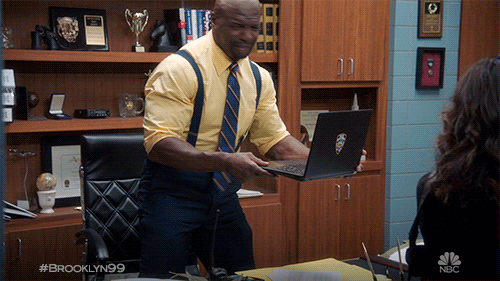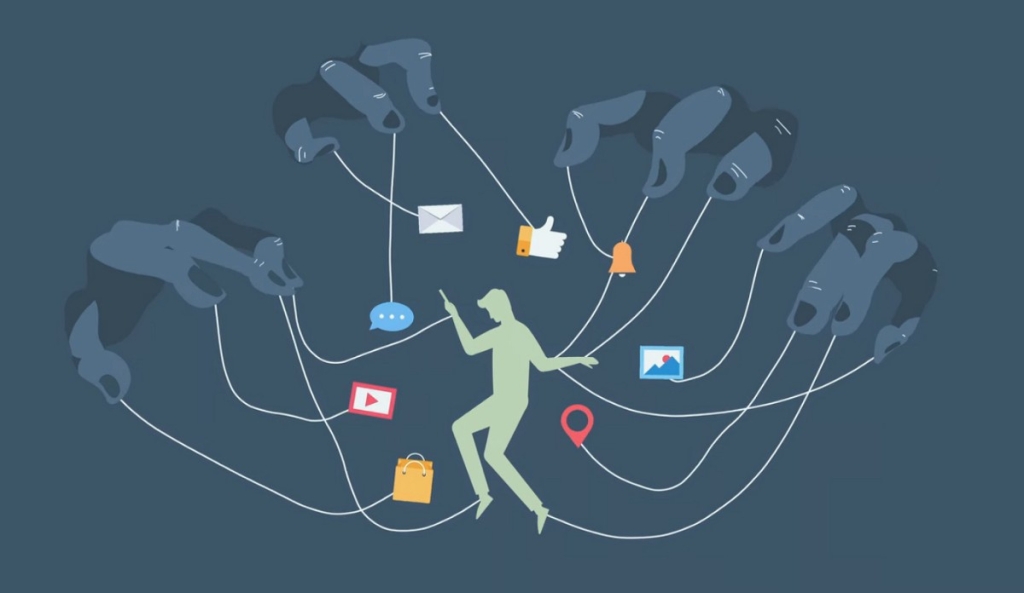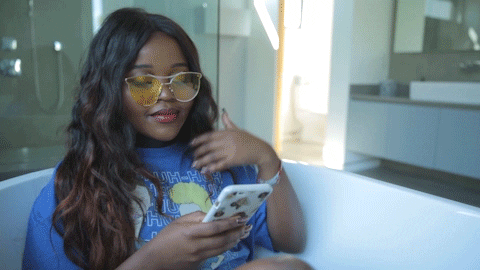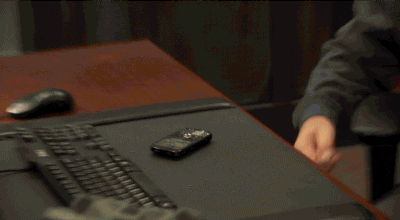I have heard all about The Social Dilemma on Netflix, and many of my co-workers watched it and encouraged me to watch it as well. This week, I finally got around to watching it. I was both surprised and worried by what I watched. However, many of my colleagues seemed flabbergasted, claiming to have deleted their social media accounts and turned off all notifications because of the acclaimed docu-drama. Maybe it is because of what I am learning in these courses, or because I have been a little more aware of what social media does to our brains, but I was left thinking, that’s it?
Don’t get me wrong, I think there is a lot of alarming information in the docu-drama and a lot of information that I learned about social media and the algorithms behind the screen. But, based on the reactions of others, I think I was expecting more alarming statistics, information and, experiences that I didn’t get by watching it.
The part that sticks out the most of me was actually at the beginning of the film. People behind the scenes ask former employees of major media companies, “what is the problem?” None of the employees can put into words what exactly the problem is, but all claim it is bad. I am not denying that social media and these companies have created a beast they can no longer control, but for the former employees to not even be able to begin their personal explanations, I found both interesting and off-putting.
As Nancy said in her blog post this week, “Many were responsible for the development of the technology that they are now condemning. Ethically I questioned how they made their money, and are now attacking them. This presented a very unequal perspective.” I too, wondered this as I watched, mostly because I have become a lot better at critically reflecting on information given and looking for bias. There was a lot of bias here, and unfortunately, no rebuttals from either current employees or the larger companies themselves within the film. As Nancy went on to say in her post, there were statements made by Facebook on Facebook.
Another big statistic that stuck out to me was about the young girls affected by social media in a negative way. I graduated high school in 2009, and am I glad that I did not have to deal with social media as a teenager. It was enough to deal with in university and young adulthood, but I could decipher between reality and fiction through the different apps. A young preteen just can’t, and it breaks my heart. The docu-drama links self-harm and suicide attempts of young girls to the advancement of social media on personal devices. This occurred in 2009 according to the docu-drama – right when I finished high school, and as a young teacher, I could tell immediately how different things were in high school because of this advancement in technology.


There isn’t a direct correlation between these events, but I know it is definitely influenced by the advancement in tech availability. I see it now in my classroom and it still breaks my heart that these kids don’t know what it is like to not compare yourself to everyone else online. This also has an implication further into the classroom because I have very few students willing to participate in class discussion and it often takes weeks for me to get them comfortable talking in class. I assume this is anxiety as well as the worry that they will be talked about online if they somehow mess up.
One piece I think the docu-drama does very well is the explanation of privacy, data collection, and how the algorithms use every click you make to predict your next move. I found this part incredibly interesting and eerie. I instantly thought of everything I have ever clicked on or looked at, and it feels os invasive, yet there are minimal laws surrounding the use of that data. There is a quote used in the film: “If you’re not paying for the product, then you are the product.” This hit me. For some reason, I never truly thought about it like that, but it makes complete sense. The idea that we use these apps and services for free, insinuates that there is more going on behind the scenes. There are so many ads, yet I hardly pay attention to them. How could this do anything to my way of thinking? However, the film argues that slowly, these ads change the way a person thinks or gives them ideas they previously would not have if they chose to forgo the apps altogether.
I think this section of the film is done well and does its best to educate on how that data is used and abused. Really what we need are laws in place to protect our data as well as possibly limit how much of it these companies can store. This is incredibly important for the future and I think it is also a valuable lesson for students to understand how their data can be traced, used, and manipulated to keep them on the apps and growing within them.
The final piece I took away from The Social Dilemma was how these companies use notifications to keep you on the apps or to get you back on them. I’m not going to lie, when the film used some of the common sound effects for notifications, I felt a rush in my chest. I immediately connected this as a dopamine effect. I was a little alarmed and thought instantly, “Oh my. I have a problem.” However, I think this reaction comes from years of having a phone and getting so used to the effects those notifications have on our psyche. The film suggests turning off notifications on your phone, so you are less likely to waste time on your devices, and less likely to be distracted by them. I completely agree. I didn’t turn off all my notifications, but I did reduce them to the important ones I need throughout a day. I also silenced most of them because for me, the sound of the notification is far more distracting than the screen lighting up.

I think this is an important takeaway we all need and I found myself agreeing with the interviewees as they discussed how the algorithms attempt to lure you back to the app after too much time away. It’s incredibly addicting and it works. Then poof! 15 more minutes are gone.
When I think about the educational implications this docu-drama has, I think about my teenage students, in the most vulnerable place they will be in their lives, and how they do not understand what psychological affects these programs have on their productivity, their attention span and their self esteem. Now more ever, media literacy and digital citizenship programs need to be taught in all areas of the classroom – and don’t even get me started on the fake news debate in this film! (That might have to be a separate blog post all on its own!) Students need the tools to understand how these apps work and how they can be used in a positive and effective way. As Virginia Society for Technology in Education says in their article, “[Web 2.0 tools] are interactive and allow users to connect and collaborate with both the Web and other people.” (4) Could we just get rid of it all? Yes, but we are too far down the rabbit hole to turn back so we need to embrace the tools and learn how to use them effectively and how to limit our time spent on them.
As the film closes out, it makes recommendations for going forward. Turn off notifications, set boundaries, and live in the world. I think the most important message behind it all was remembering to actually live and not live through others or through a screen. These tools have done so much good during the pandemic to connect people, but we need to remind ourselves and our students that the real connections that matter are with the people in front of us. So set a timer, put the phone away, and have a real conversation with someone you love.
Until next time,
Shelby






Shelby, Great post and fantastic job of summing up the documentary points! I appreciated the connections you have made with yourself and your students. I also found it very interesting that when the former employees of major media companies were asked, “what is the problem?” that it was silent and no one could not put into words what exactly the problem is. I had a hard time focusing on my direction in writing my blog post. This question actually helped guide my blog post.
LikeLiked by 1 person
I agree with so much that you said. It was a very one sided view and as much as they did make some good points that got me thinking, they never really shared the other side. The fact that we are the product and that we are being manipulated is what really stuck with me. The way they try and change our thoughts by using the algorithms to show us exactly what we want to see is the part that freaks me out. The mental health of our young is scary too but that has been talked about for years. I was not surprised to see that come up. I also found it interesting that the people who invented all this amazing technology, were unable to come up with what the problem is. I also found it interesting that they keep their own children away from the things they have invented and made some major profit on. It would be interesting to see this updated five years from now. See where they stand then?
LikeLike
Great post! I agree with much of what you shared. I think the common thread that many have written about in this week’s blog is the amount of education that is absolutely essential for our youth to be able to safely navigate social media. Each day I count my blessings that I grew up in a time where human connection was all we had. I did not have the option to text someone or hang out online. It is frustrating to see so many of our youth (and adults) who can only socialize through technology and struggle with actual conversations and social situations. I love your statement about how we must actually live and not through others or the screen. What great words of wisdom for all of us to live by!
LikeLike